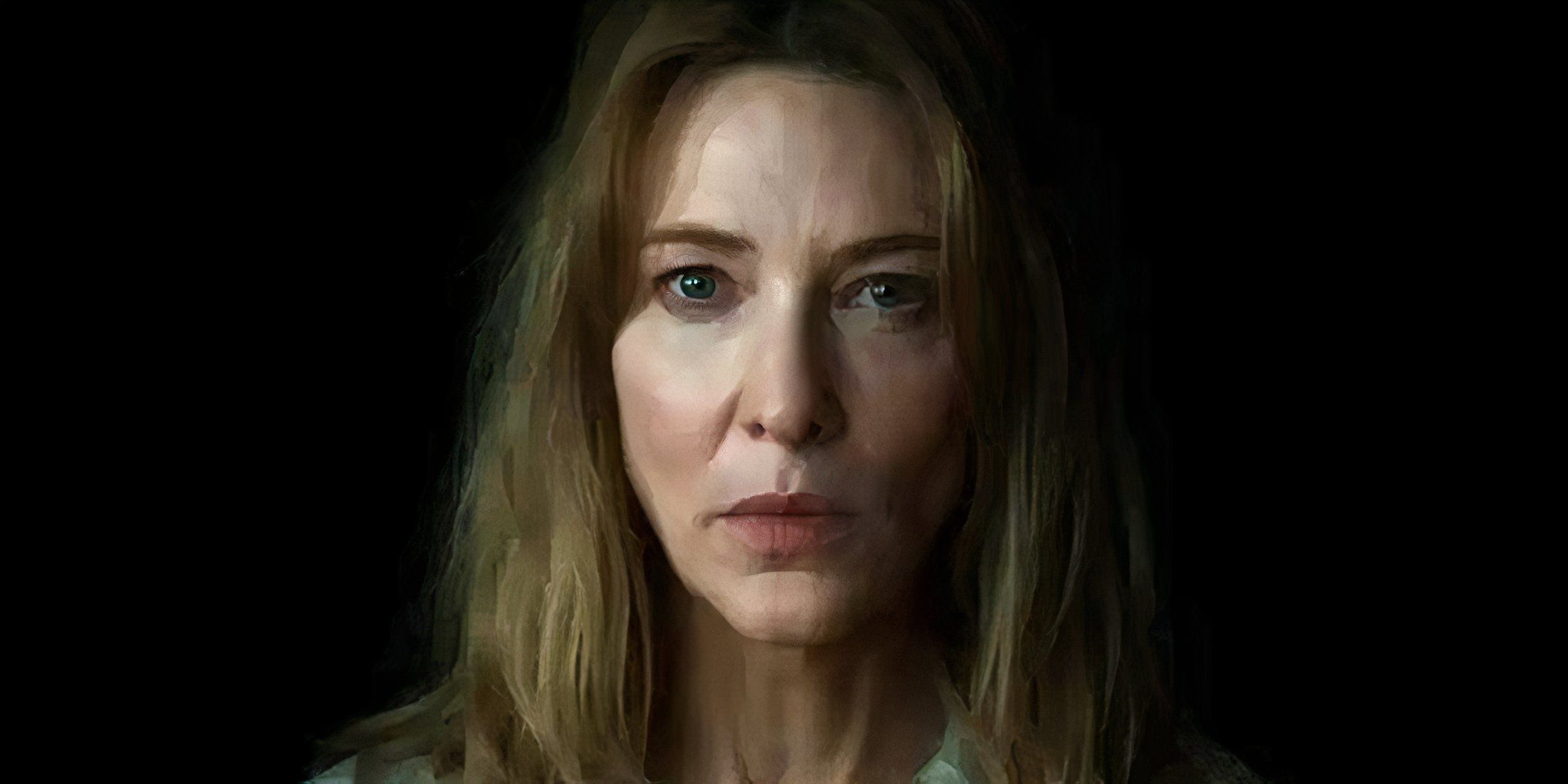Contains discussion of sexual assault, abuse, and suicide.
It may have gained major awards attention, but what exactly does Tár‘s ending really mean? Directed by Todd Field, the movie tells the story of Lydia Tár, a fictional conductor whose incredibly accomplished life comes crashing down around her after a series of scandals rise to the surface. Tár‘s complex narrative is matched by its rich and layered themes, with the film demanding further analysis.
Tár came out in October 2022, and the Cate Blanchett music drama was a major player in the 2022-2023 awards season. As the lead of Tár’s cast Blanchett snagged Best Actress in a Drama Motion Picture at the Golden Globes, and Tár was top 10 for the year at the AFI Awards. Tár was also nominated for six Oscars, including Best Picture. There’s a lot to break down in Tár’s ending, including the biggest story moments, themes, and unanswered questions.
What Happens In Tár’s Ending
Lydia’s Choices Catch Up To Her
Tár follows several different aspects of Lydia Tár’s life as they fall apart simultaneously, tying them together in a tragic crescendo. By the finale, Lydia Tár is the subject of protests and controversy, causing her to lose her job at Julliard and her prestigious position as the conductor of a live recording of Mahler’s Fifth Symphony. This causes Lydia to spiral further, with her wife, Sharon (Nina Hoss), preventing her from seeing their daughter. At the height of her depression, Lydia attacks her replacement conductor, which causes her blacklisting.
Tár‘s Golden Globes and Oscars success is due to the balancing act it performs with Lydia at the end of the film. At the very end of Tár, Lydia finds work in the Philippines, signaling the conductor may have a second chance. However, a scene at a brothel implies that Lydia will forever carry guilt for how she sexually abused her students. As Lydia conducts her final orchestra in the film, the camera pans as it reveals she is doing a live performance of the score from the video game series Monster Hunter.
Was Tár’s Ending A Hallucination?
Lydia’s World Becomes Dramatically Nonsensical
One interpretation of Tár‘s ending is that the events are a hallucination. If this interpretation is correct, Tár could be one of the weirdest and most abstract movies Cate Blanchett has starred in. Starting with Lydia leaving her car at the abandoned apartment building, Tár‘s cinematography and editing change drastically, as floaty camerawork and intentional continuity errors make it clear that something isn’t right. Subsequent scenes show the protests against Lydia increasing drastically in a way that doesn’t appear logical.
This reading appears to hold up, and Tár makes more sense if the final scenes are a guilt-induced hallucination, with the film’s ending taking place entirely inside Lydia’s head. The scenes in which she assaults the conductor and sees the woman who looks like Olga (Sophie Kauer) at the brothel don’t really make sense if everything on the screen is intended to be happening literally. Tár constantly hints that Lydia’s struggle with her depression is getting worse throughout the film, and that fits with this reading of Lydia’s disconnection from the real world by the ending of Tár.
Further Evidence That Tár’s Ending Was A Hallucination
Lydia’s Final Scene Is Shot Differently
Tár‘s ending shows a massive fall from grace for Lydia Tár. She goes from working as a renowned composer who influences the next generation of musicians to someone who conducts a video game score for a group of cosplayers in Southeast Asia. The idea of her composing the Monster Hunter score is pointed in itself, asking if she is a monster or if she now sees herself as a monster. The idea is that Tár will keep making music, and no one will stop her, no matter what the music is for.
The sounds she hears, the paranoia she faces, the pendulum itself – it is all as much gothic horror as anything.
However, the idea of the “monster” composing music for the Monster Hunter cosplayers really shines a light on what might possibly be the hallucination of this specific scene. The reason so many people see this as a hallucination or a dream is because of how strange the entire scene plays out. It is shot with such a heightened realism that it just doesn’t fit with the rest of the movie. However, the sounds she hears, the paranoia she faces, the pendulum itself is all as much a gothic horror as anything.
In a gothic horror reading, Lydia Tár is haunted by a ghost, and in this case, that would be Krista Taylor, her former protégée who she blackballed. This led to Krista’s suicide, and everything that Lydia goes through after that almost seems like she is mentally and psychologically punishing herself. Everything that happens to her, she really believes she deserves, even if she doesn’t outright say it. From the metronome ticking to the screaming in the woods, Tár is haunted. The “monsters” at the end play into that.
Why Tár Ends With Cate Blanchett’s Lydia Conducting Monster Hunter
The Title Of The Video Game Is Incredibly Fitting
For such a serious and dark movie, Tár has a peculiarly light ending, with Lydia conducting in front of a live audience of Monster Hunter fans in cosplay.Tár goes into detail on Lydia’s past accomplishments, explaining she has written books and is attached to multiple prestigious projects at the beginning of the film. Lydia even won an Emmy, a Golden Globe, an Oscar, and a Tony, highlighting her successful career. This is juxtaposed with Tár‘s ending, in which Lydia is conducting the last piece anyone would expect.
Monster Hunter
was picked for Lydia’s final symphony because of its title, although this isn’t implicitly stated during
Tár’s
ending itself.
Lydia’s character is presented as pretentious about music, looking down on what she sees as lesser mediums, such as video games. So, having Lydia conduct the Monster Hunter game and movie series is a punchline that shows how her life has been flipped upside down. On that stage in front of all the cosplayers, Lydia has clearly been humbled. However, the ending also shows that her obsession with perfecting music will never end, with the scene seemingly kicking off Lydia’s attempts to get back to the top of the music world.
The choice for Monster Hunter specifically for Tár‘s ending is also likely deliberate. Any video game music could have been chosen, after all, and some may wonder why it wasn’t a more recognizable score like Super Mario or The Legend Of Zelda. Monster Hunter was picked for Lydia’s final symphony because of its title, although this isn’t implicitly stated during the ending itself.
Monster Hunter is a thematically perfect choice given Lydia’s perception, both from herself out others, as a “monster.” The “hunter” aspect can be read both as the guilt forever chasing her and as metaphorically fitting the public and media hounding of Lydia throughout Tár.
Does Tár’s Ending Confirm That Lydia Tár Is A Villain?
Her Actions Are Certainly Villainous
There are two sides to whether Tár is really a villain. Judged solely by her actions, Lydia Tár should undoubtedly be seen as a bad actor. She is incredibly tough on her students, going on a racist tirade that causes one of her pupils to quit her class. Worst still, Lydia grooms some of her female students into sexual relationships.
After one student named Krista tried to leave, Lydia blacklisted her from the industry, causing Krista to take her own life. The repeated pattern of grooming makes Lydia Tár a villain, with the film showing her finally being held accountable for her actions.
Lydia is a villain, but the film leaves it up to the audience to determine that rather than spelling it out.
The movie itself, however, doesn’t directly call Lydia a villain. Tár is told from the perspective of Lydia, with Cate Blanchett’s character constantly trying to justify her actions to herself. Lydia is a villain, but the film leaves it up to the audience to determine that rather than spelling it out. This has made Tár controversial, but the choice also makes the story much more complex and engaging.
Tár’s Real Meaning Explained
The Movie Is An Exploration Of Patterns Of Abuse
Tár’s ending presents the consequences of Lydia’s abuse. The film is about how abusive power dynamics are created, maintained, and eventually torn down. Throughout the film, Lydia starts new abusive relationships with her students while covering up past ones, with her cycle of sexual exploitation continuing. The complexity of Tár undoubtedly helped it to its place at the 2023 Oscars, and it is important that it highlights the way that Lydia’s position of power and influence necessitates that any relationship she has with her students will be abusive.
However, Tár is about exploring the lies that abusers tell themselves in constant attempts to justify their actions. During the recorded argument between Lydia and her student, the two speak on the idea of cancel culture. The film then spends the rest of its runtime setting up a situation in which canceling someone is justified, showing that if people speak out, these abuses of power can be remedied. While these are the biggest themes, there’s a lot to get out of Tár, with it tackling complex ideas that are unique to this story.
The Ending Of Tár Helps To Secure Its Acclaim
The Film Was Met With High Praise
While audiences might want Tár’s ending explained in a way that answers everything, the movie is comfortable leaving things open-ended. This might contribute to the mixed audience reaction to Tár, yet it is likely another reason the movie was an awards season favorite.
There were more satisfying endings the movie could have gone with, either Lydia totally undone by her wrongdoings or on some path of redemption. However, the movie isn’t interested in playing it so safe, and instead gives an ending that continues the complexities of the story and sticks to a more realistic approach.
The final scene cements the humbling position Lydia now finds herself in.
Lydia loses everything she holds dear as a way of showing the consequences of her actions, however, the ending also shows that her passion for art remains. And yet the final scene cements the humbling position Lydia now finds herself in. It makes for a complete story that has been embraced so strongly, even leading to Tár’s six Oscar nominations and Cate Blanchett’s Golden Globes win.
A Deleted Scene Helps Explain Tár’s Ending
Some Cut Dialogue Exposed A Lot About The Central Character
The ending of Tár is skillfully ambiguous and leaves the viewer with many questions, both about the complex and nuanced morality of its plot and about whether the final moments even happened. However, there is a deleted Tár scene that brings greater clarity both to the plot and to Lydia’s eventual fate. This was revealed by editor Monika Willi. Speaking to Variety, Willi explained that a key cut scene exposed the full effects of Tár’s insomnia, and went a long way toward explaining her mental state:
“Despite all [Tár’s] talents, she’s reclusive from the world and she’s thrown back to [her] insomnia. She’s in her apartment. She plays sounds, but she’s also hearing things, Lydia plays the sounds she’s hearing and she’s trying to get rid of them. We put together those scenes where she’s very alone, and then we cut to Mahler V. Movement I. Trauermarsch. Bar 20, which hits the audience and we see her full professional attitude.”
While this scene doesn’t fully explain everything in the movie, it does show that Tár is an incredibly troubled character. Its omissions added to the ambiguity of the film because, were it included, it could have been seen as a story about a woman losing her grip on reality, rather than about the morality behind her choices, as Tár eventually was in the final cut.
How The Tár Ending Was Received
With six Oscar nominations and a score of 91% on Rotten Tomatoes, Tár was certainly a hit with critics. However, even with such an acclaimed movie, the unexpected ending caused some division. While Tár‘s ending was overall seen as a fitting conclusion to the story and a bit of dark humor that caps off the story, many critics disagree over what the ending actually means. Some felt the movie was condemning Lydia in its final moments and even set up her arrogance as her downfall in the beginning.
Clarisse Loughrey, film critic for The Independent, pointed out the movie’s decision to start with the credits of the overlooked members of the production rather than the actors, producers, and director which is normally seen in the opening credits. By the end of the movie, this decision seems to comment on Lydia’s selfish view of others and forgetting she is a part of something bigger than herself:
It’s striking that Field chooses to split his film’s credits. Tár opens with all those who work behind the scenes, who rarely receive a taste of fervent adulation – the gaffers, the assistants, the location scouts – and ends with the actors and musicians who sit atop the pyramid. Lydia may refuse to see it, but Tár reminds us that genius never lives alone.
However, there were other critics who felt the movie was more complicated in its view of Lydia, and that the ending questioned the validity of having an artist of such talents no longer able to share those talents with the world. RogertEbert.com‘s Glenn Kenny suggested the ending poses such difficult questions to the audience:
In the end, “TÁR” is not a diatribe or parable, but an interrogation, one that seeks to draw the viewers in, and compel them to consider their own place in the question.
Interestingly, some view the ending of Tár not as Lydia’s humiliating defeat, but rather as the beginning of her comeback. Conductor Somtow Sucharitkul shared his view of the ending in this way and felt it suggests Lydia will not be kept down (via THR):
Before her departure for the old “unnamed Asian country” we learn that she’s already reinvented herself once before, dropping her decidedly “white trash” past for the exotic mystique of the name with the funny accent. I am not at all sure that she won’t have the last laugh in this story.








